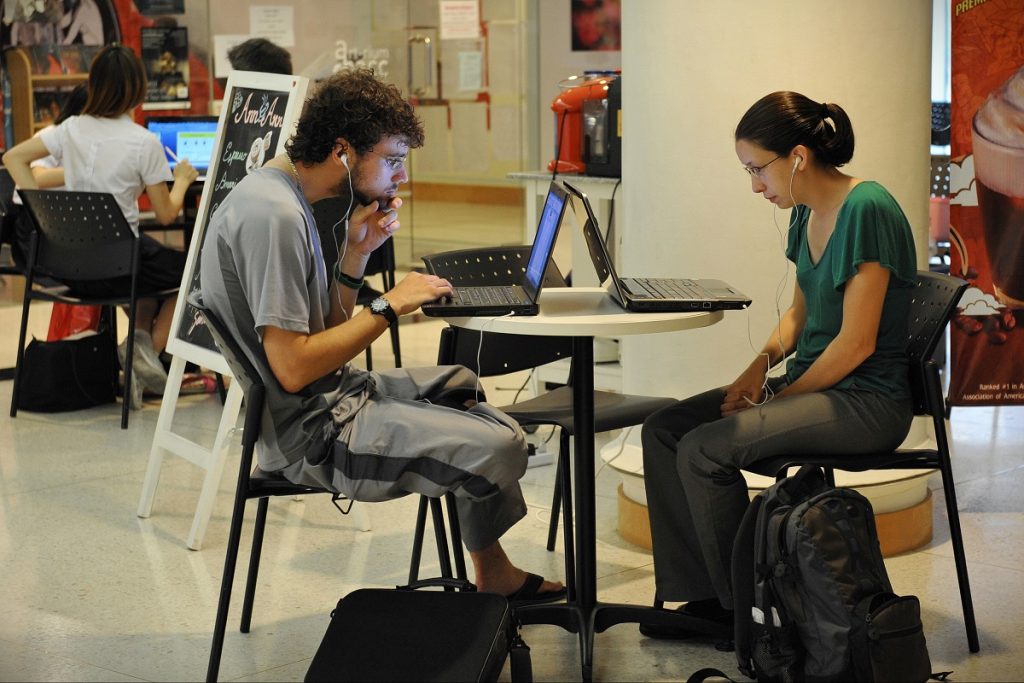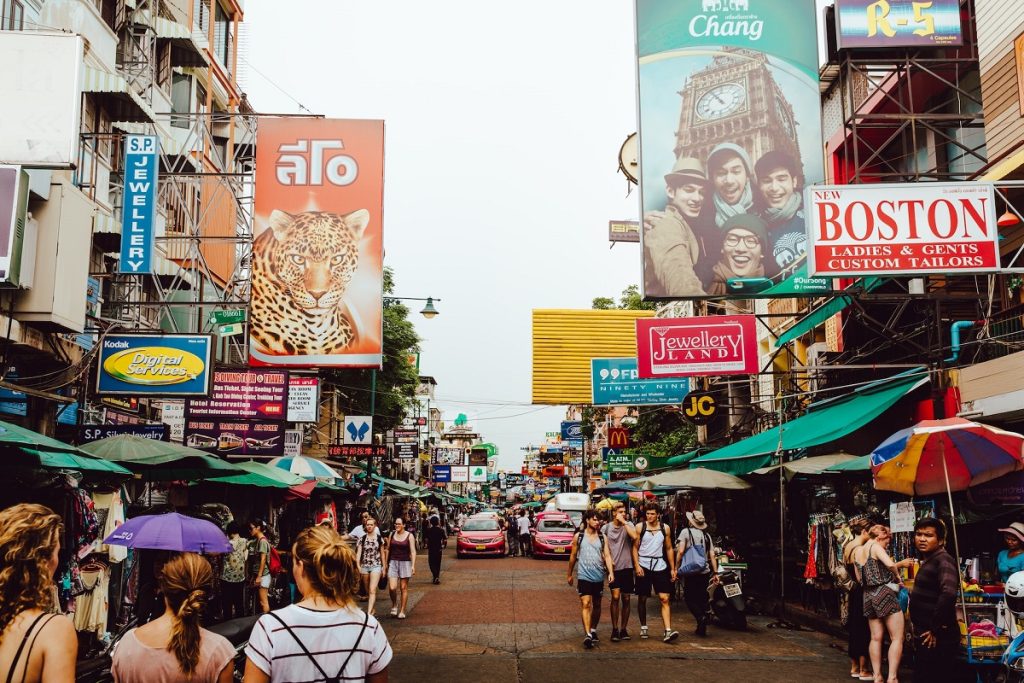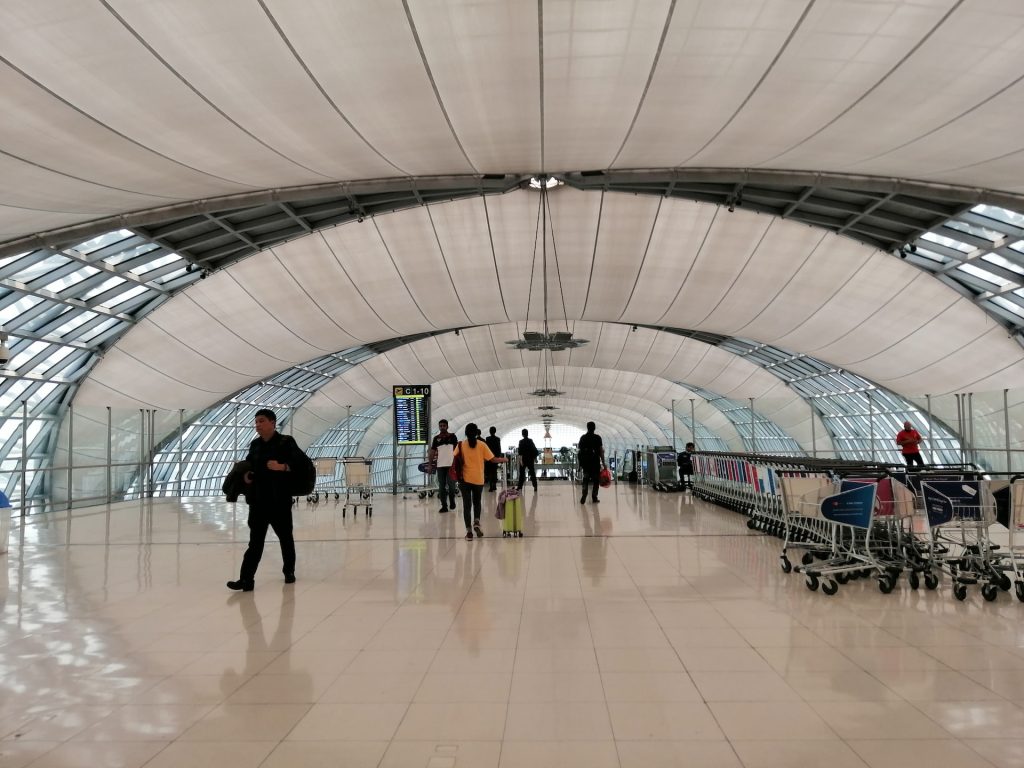The Thai city of Chiang Mai is considered the Digital Nomad Capital of the world. Thailand admits visitors on several different visas, including its version of the digital nomad visa – the Long Term Residence Visa (LTRV). Workers who qualify can stay in the country for 10 years and be taxed at a rate of 17%.
Thailand has long been a favorite destination for remote workers who used tourist visas to keep them in the country in the absence of a Thai digital nomad visa.
Recently, the Thai government released a Long Term Residence Visa (LTRV) is a new initiative introduced to allow long-term stays of up to 10 years. Early assessment of the visa is that it more likely to appeal to wealthy, well-educated workers than millennial digital nomads who want to stay in Thailand for a year or two.
With its beautiful beaches, rich cultural heritage, and delicious cuisine, Thailand is an ideal destination for digital nomads seeking adventure and inspiration. Whether this new visa will catch on with digital nomads is up for grabs, but there are many other visa options.
Table of Contents
What Is Appealing About Being A Digital Nomad In Thailand?
Being a digital nomad in Thailand offers many appealing advantages.
- Thailand’s low cost of living and affordable accommodation make it an attractive destination for remote workers. You can live there in Chiang Mai, the “digital nomad capital of the world” for less than $1,000 per month.


- Its warm climate and beautiful beaches provide a relaxing and picturesque backdrop for work and leisure.

- Great internet, friendly cafes and working spaces, and a supportive digital nomad community make the country inviting to new and experienced remote workers alike.

Thailand’s unique culture and diverse cuisine offer an enriching experience for digital nomads seeking adventure and inspiration.


Is It Legal To Work Remotely In Thailand?
Yes, it is legal to work remotely in Thailand as long as you are not working for a Thai employer or providing services to clients based in Thailand. If you are working for a foreign employer and your work does not involve physically being in Thailand or working for Thai clients, you are not required to obtain a work permit.
However, if you plan to stay in Thailand for an extended period, you may need to obtain a long-term or non-immigrant visa that permits you to work remotely. You should consult with the Thai embassy or a qualified immigration lawyer to ensure that you comply with Thai laws and regulations.
Does Thailand Have Digital Nomad Visas?
Before the issuance of the LTRV, Thailand did not have a specially designated digital nomad visa.
Many digital nomads opt for the 60-day tourist visa and extend it at immigration offices for an additional 30 days, allowing them to stay in Thailand for a total of 90 days. You can repeat this process through a “visa run,” where individuals fly to a neighboring country like Malaysia and apply for another tourist visa to gain another 60+30 days in Thailand.
However, due to the Covid-19 pandemic, these visa runs have become challenging, and entering Thailand has become more complicated. Initially, Thailand extended visas for tourists and digital nomads who could not leave. For those seeking to enter Thailand, entry was impossible in early 2020 and later required expensive hotel quarantine schemes.
The pandemic hit Thailand hard as tourism dropped from 40 million visitors in 1029 to 400,000 for 2021. The country did not reopen to tourists until mid-2022.
How The Thailand Long-Term Residency Visa Came About
Worldwide, the pandemic made digital nomads of wealthy people who could work from anywhere. Small Caribbean nations developed digital nomad visas to attract many of these workers, so Thailand missed out on this travel boom of affluent workers, as they lost many of its less-affluent digital nomads to Mexico, Portugal, and Georgia.
The Thailand Board of Investments launched the 10-year Thailand Long-Term Residency Visa (LTRV) on September 1st, 2022, in an attempt to mine the wealth digital nomad potential. Rather than appeal to those who wanted to stay 1 or 2 years, they aimed to attract those already serviced by visas such as the Elite and SMART visa. The Visa incorporates several features from the SMART visa. The LTR visa is primarily aimed at affluent ex-pats and digital nomads seeking to stay in Thailand for an extended period.
What Are The Available Visas In Thailand?
Thailand has several visas that people may use to work.
The Tourist Visa
Eligible tourists do not have to submit a visa application when arriving in Thailand. The 30-day limit is sometimes extended – visit your local Thai embassy or consulate website for details. For those who want to work, the most popular visa option Thailand currently offers for remote workers is the tourist visa, which allows visitors to stay in the country for up to 60 days and can be extended for 30 days.
A Single-Entry Tourist Visa is valid for between 3 and 6 months, depending on the frequency of your entries through a land border or airport. A normal tourist visa will allow you a 60-day stay if you enter Thailand via an international airport.
A variation is the Multiple Entry Tourist Visa that allows you to stay in the country for 6 months, with extensions possible for a total 9-month stay. Many digital nomads use the single entry option and do visa runs to leave the country and reenter it to extend their stay.
The 30-Day Exemption Scheme Tourist Visa is the easiest one to obtain. It is free if you are a member of one of these 64 countries.
Eligible tourists do not have to submit a visa application when arriving in Thailand. The 30-day limit is sometimes extended – visit your local Thai embassy or consulate website for details.

The Thailand Smart Visa
The Thailand Smart Visa is designed to attract highly skilled professionals, investors, and entrepreneurs to Thailand. This visa is part of the Thai government’s strategy to promote innovation and technology in the country by supporting the growth of targeted industries.
The Smart Visa offers a four-year stay option, multiple entries, and the ability to work in certain industries without a work permit. Eligible applicants include foreign experts in targeted industries, executives of foreign companies investing in Thailand, and entrepreneurs who meet certain criteria.
This visa also provides additional benefits, such as expedited immigration processing and assistance finding accommodation and other services in Thailand. The program also provides benefits such as access to coworking spaces, health insurance, and the ability to pay taxes. Smart T and digital work permit holders also have a lower tax rate. Dependents of visa holders are also allowed to stay in Thailand, making it an excellent option for families.
Phuket and Bangkok are hotspots for remote workers, while other cities and regions are also catching up. Thailand’s proximity to other popular destinations in Asia, such as Indonesia, and its location as a gateway to Europe enhance its appeal to global citizens.
The Thai Elite Visa
Also appealing to wealthy pensioners, the Elite or Privilege Entry visa allows multiple entry access for 5, 10, or 20 years. This visa comes with perks like lounge access, luggage collection, and VIP immigration for prices ranging from $20-70K depending on the duration of stay.
This visa is mainly aimed at wealthier professionals who wish to retire in Thailand.
The “B” and “O” Visas
Two other long-term visa options are the Non-Immigrant B visa for business use and the Non-Immigrant O visa for retirement or family-visit purposes. These visas allow longer stays in the country and may be suitable for those remote workers who can work from anywhere.
More About The Thai Digital Nomad Visa
How Many Days Do I Need To Stay In Thailand To Be Eligible For The Digital Nomad Visa?
To be eligible for the Long Term Residence Visa (LTRV) in Thailand, you must have held a non-immigrant visa for at least three consecutive years before the application. During those three years, you must also have a one-year extension of stay and a work permit or a retirement visa.
It is also necessary to have a good immigration record and not have any criminal convictions or be prohibited from entering the country. Therefore, you must stay in Thailand for at least three years with the appropriate visa and permit to be eligible for the Long Term Residence Visa.

What Are The Income Requirements For The Digital Nomad Visa Thailand?
The Thai Long-Term Residence Visa (LTRV) does not have specific income requirements. However, to be eligible for this visa, you must meet at least one of the following financial criteria:
- Have a minimum balance of 3 million Thai Baht (THB) (approximately USD 92,000) in a Thai bank account for at least one year prior to the application.
- Have a minimum annual income of THB 1.8 million (approximately USD 55,000) and pay personal income tax in Thailand for at least one year before the application.
- Have a combination of the above two criteria totaling at least THB 3 million.
It is essential to note that the financial requirements may change. It is advisable to check with the relevant authorities or a qualified immigration lawyer for up-to-date information.
Further Aspect And Advice About The Thai Digital Nomad Visa
In conclusion, Thailand’s remote working visa program has made it a popular destination for digital nomads, freelancers, and work-from-Thailand professionals. The Thailand Digital Nomad Visa, Long Stay Visa, and Smart Visa programs offer a range of options for visa holders to work remotely from Thailand for up to five years. You can complete the application process through government agencies such as the BOI, and the visa fee is reasonable.
Supporting The Local Economy
The program also supports the local economy by bringing in startup entrepreneurs, retirees, and popular digital nomads worldwide. With visa requirements that include a master’s degree or relevant work experience, the program attracts highly skilled professionals.
In summary, Thailand’s remote working visa program has created opportunities for a diverse range of professionals to work and live in Thailand for an extended period. As the program continues to evolve and expand, it will undoubtedly solidify Thailand’s position as a go-to destination for digital nomads, freelancers, and work-from-Thailand professionals.
However, the tourist visas that have served a wide range of digital nomads for decades are likely to remain the go-to document for most remote workers.


